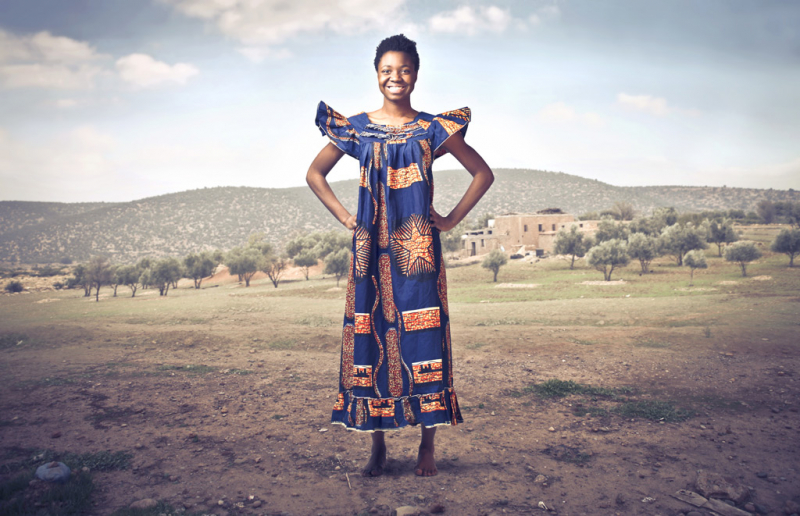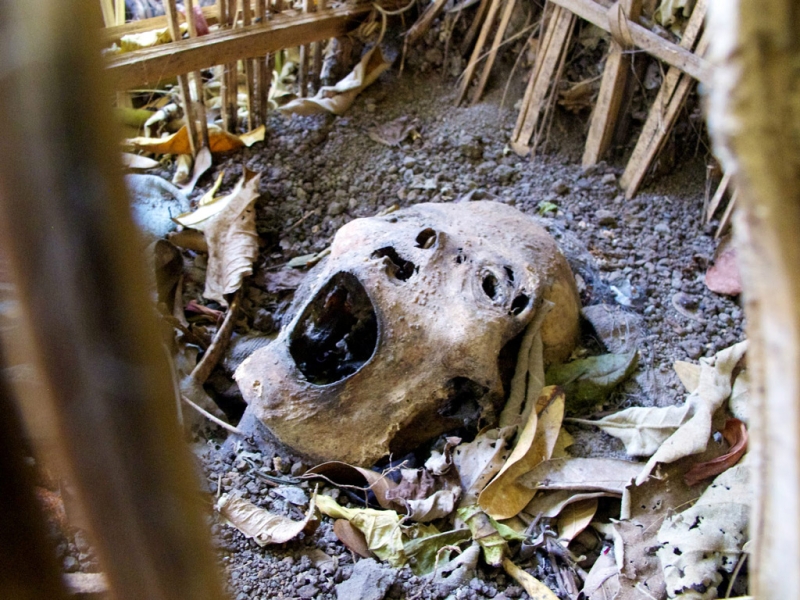
Last week, news spread across the Internet that another traditional exhumation was carried out on one of the Indonesian islands in order to see deceased relatives, clean their clothes and remains, and in such a wild way for us to pay tribute to the deceased .
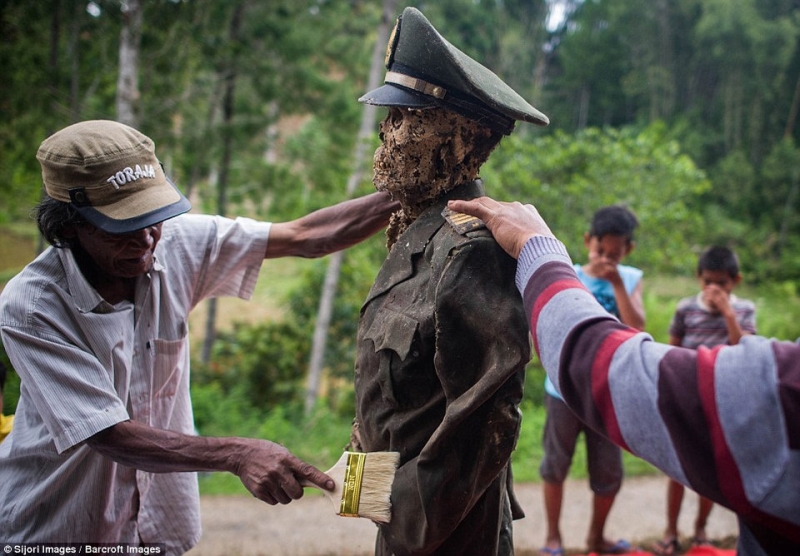
Especially for those who would like to see such a spectacle with their own eyes, and are upset that they have to wait several years for the next exhumation, we inform you that in Indonesia you can see the dead at any time of the year, and in the most unexpected place – in the center of Bali!
Away from noisy tourist areas, on the shores of Lake Batur, on the slope of Mount Abang, surrounded by jungle, there is a small closed village of Trunyan. Its inhabitants call themselves Bali Aga, that is, mountain Balinese. Their closed community has not succumbed to outside influence, their traditions are rooted in antiquity, and their religion is built on respect for the earth and the forces of nature.
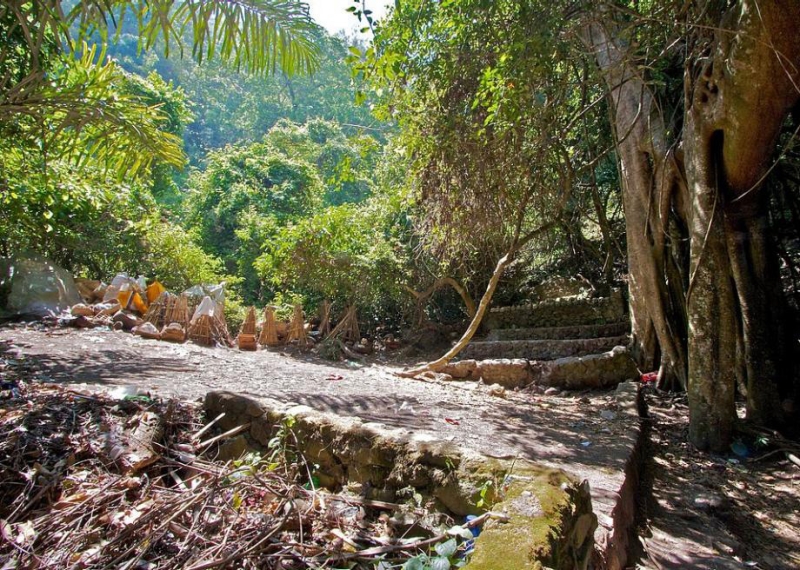
Photo: Yusuf IJsselijk
The most extravagant tradition for Europeans of the inhabitants of the village of Trunyan is the funeral, or rather, the ceremony of transition to the afterlife, since the deceased are not buried or cremated here. They are simply placed on the ground.
It all begins with a ritual washing of the body with rainwater, after which the deceased is taken to the sacred Taru Menyan tree, which is located about five hundred meters from the village, but can only be reached by boat on the lake. Near this tree, 11 bamboo cages in the shape of triangular prisms were built. The body is wrapped in cloth, placed in one of these cages and left. If all the cells are occupied, then the body, or rather the remains that have been lying in one of the cells longer than the others, are pulled out and placed next to it, and the cell is occupied by a new body.
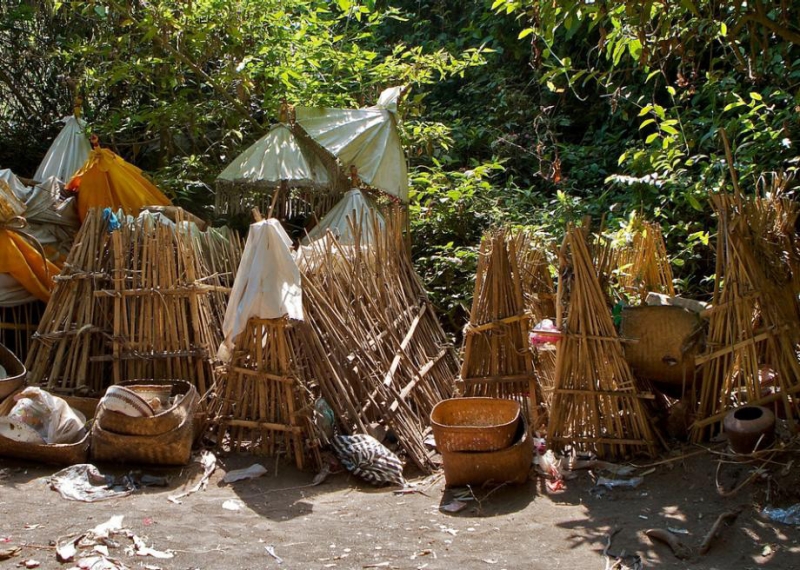
Photo: Yusuf IJsselijk
Thus, all the deceased surrender to the power of nature – rains and winds slowly but surely destroy soft tissues. Once only the skeleton remains of the body, its skull takes its place in a ritual pyramid that has grown over the centuries near the sacred tree. Residents worship the tree for a reason – its greatness lies not so much in size and age, but in the fact that the subtle aroma that its bark exudes neutralizes the smell of decaying bodies.
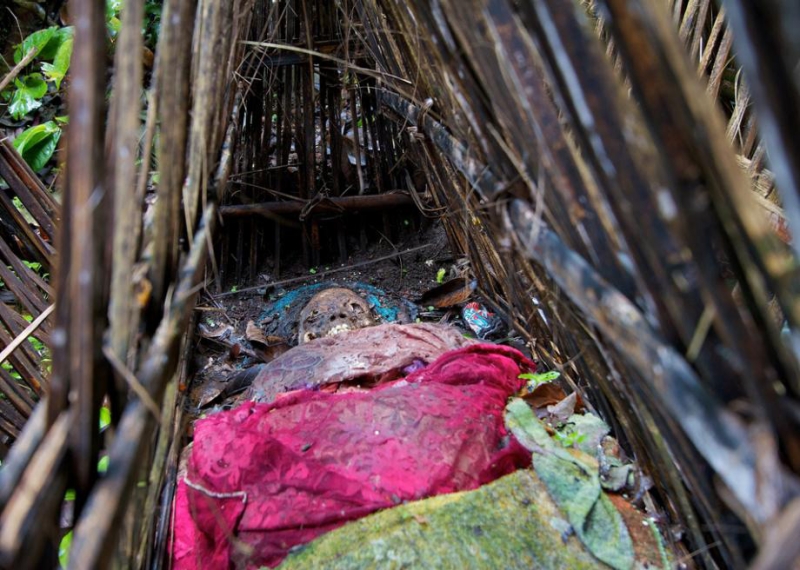
Photo: Yusuf IJsselijk
According to tradition, only married members of the community can get under the Taru Menyan tree; those who did not have time to start a family during their lifetime go to a regular cemetery near the village after death. In addition, the women of the village are prohibited from visiting the cemetery, participating in burial ceremonies and swimming to the sacred tree, as it is believed that this will incur the wrath of the gods and cause an earthquake, avalanche or volcanic eruption. The locals are also not very friendly towards tourists, but these days, for a certain fee, you can temporarily gain their favor. To visit the dead under the sacred tree, you will have to spend the night near the village and pay the boatman well for transport. You should not expect that Taru Menyan completely absorbs the unpleasant odor; it only dilutes it with its aroma. In general, this excursion is not for the faint of heart and not for everyone, but if you really want to, then you can do it.
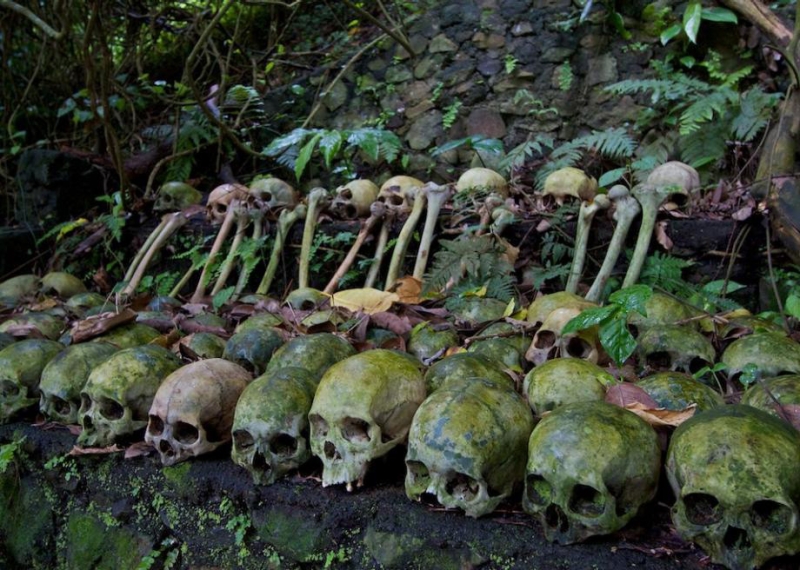
Photo: Yusuf IJsselijk
